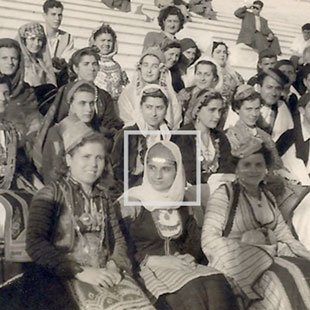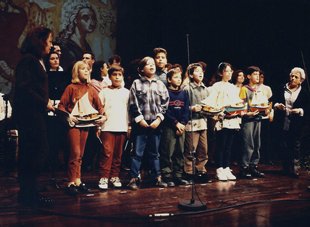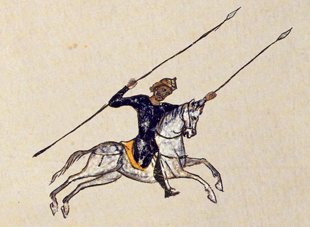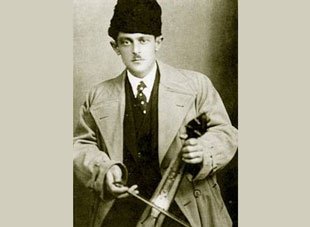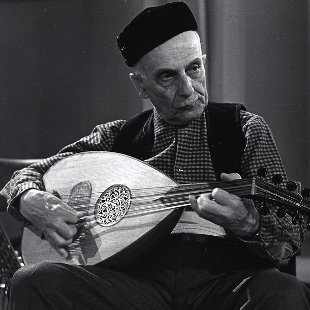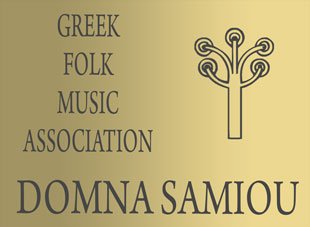You are at: Home page Her Work List of Songs I gave up all I had & What’s wrong, Theonitsa?
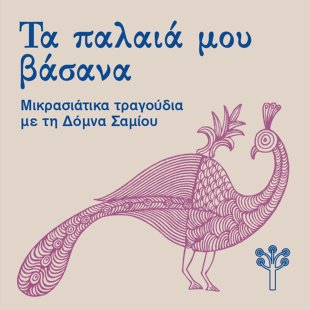
I gave up all I had & What’s wrong, Theonitsa?

Όλα μου τα παράτησα & Τι έχεις Θεονίτσα
Listen
Lyrics
I gave up all I had, all the joys life gave me,
And now walk hand in hand with my humility.
It’s you that torments me, but what can I say?
I love you so much, and that’s how I pay.
I sigh and hurt and weep and mourn;
I see birds on the wing, but why aren’t mine airborne?
In Aghios Konstantinos, such a pretty sight
Your love will give me: the gift of flight.
Count your stars at night, and if a pair should vanish
Ask me and I’ll tell you which thief to banish.
You’re a sun, a moon glowing bright;
You dazzled me so, I’ve lost my sight.
What’s wrong, Theonitsa? You weep the day through
But won’t you tell your Nan what it is that ails you?
What can I say, Gran, what tale can I tell?
You know nothing of love’s hidden sorrow, its spell.
Translated by Michael Eleftheriou
Original Lyrics
Όλα μου τα παράτησα & Τι έχεις Θεωνίτσα
Όλα μου τα παράτησα και την μερακλοσύνη
και περπατώ σιγά σιγά με την ταπεινοσύνη.
Εσύ με βασανίζεις, μα τι μπορώ να πω,
όλα τα υποφέρω, γιατί σε αγαπώ.
Αναστενάζω και πονώ και κλαίω και λυπούμαι,
του κόσμου τα πουλιά θωρώ και το δικό μου πού ’ναι.
Στον Άγιο Κωσταντίνο νερό τρεχάμενο,
η αγάπη σου με κάνει πουλί πετάμενο.
Μέτρησε, νύχτα, τ’ άστρα σου κι αν λείπει ένα ζευγάρι,
ρώτησε μένα να σου πω ποια κλέφτρα σ’ τό ’χει πάρει.
Εσύ ’σαι ένας ήλιος, φεγγάρι λαμπερό,
που θάμπωσες το φως μου και δεν μπορώ να δω.
Τι έχεις, Θεωνίτσα, νύχτα και μέρα κλαις
και μένα της νενές1 σου γιατί δε μου το λες;
Τι να σου πω, νενέ μου, τι να σου διηγηθώ;
Δεν ξέρεις απ’ αγάπη κι από κρυφό καημό.
1η νενέ είναι η γιαγιά (τουρκ. nene)
Information
- Region: Propontis
- Type: Couplets
- Categories: Love Song
- Rhythm: 4 beats
- Dance style: Syrtos
- Duration: 07:48
Collaborators
- Singer: Domna Samiou
- Clarinet: Thodoris Georgopoulos
- Violin: Nikos Oikonomidis
- Kanun: Panos Dimitrakopoulos
- Bowed tambouras: Evgenios Voulgaris
- Constantinopolitan lute: Socrates Sinopoulos
- Lute: Kyriakos Tapakis
- Goblet drum: Vangelis Karipis
- Bendir (frame drum): Andreas Pappas
Albums
Notes
Two songs from Asia Minor sung to the rhythm of the syrtos dance. The first melody was widespread around the Sea of Marmara, where it was sung with minor musical variations on the Kyzikos peninsula, the Marmara islands, Moudania and its environs, the coastal villages of Nicomedia, the Thracian coast of Silyvria and Raidestos and elsewhere, even travelling as far afield as the Aegean islands (Ξύπνα, διαμάντικαιρουμπλί [Wake up, diamond and ruby?, Xypna, diamanti kai roubli], for example, from the Dodecanese). The fifteen-syllable couplets with their thirteen-syllable tsakismata are romantic in nature, conveying modestly, comprehensively and with poetic perfection the sorrow of a love lost or unfulfilled. Other versions feature couplets which exhort the listeners to dance or praise good dancers (Σηκώστε να χορέψουμε, να φύγουνε τα ντέρτια, Get up to dance and banish your sorrows, Sikoste na chorepsoume, na fygoune ta dertia, for instance). Many, like the three couplets here, are very fine as poetry.
And Theonitsa’s song was first sung around the Sea of Marmara, with its dozens of coastal hamlets inhabited by Thracians and Greeks from the Asia Minor seaboard. However, we encounter it with several variations in the words and of the girl's name (Theonitsa, Theanitsa, Theofanitsa, Dionitsa etc.) in various parts of the Aegean and as far afield as Cyprus. Most likely, the song was born out of a real and tragic event. A maid is in love with someone she isn’t allowed to love, either because they are related or because her family does not want the match; when she reveals her passion to them, they kill her. In other versions, the girl falls to her death, because her family does not consent to the marriage. Wherever it took place, the event shocked the small community and became a song spread far and wide, due to its shocking and dramatic content.
In his monumental 260 Demotic Greek Melodies (Athens, 1905) Georgios Pachtikos mentions an almost complete variation from the Greek village of Kontzes near Nicomedia (pp. 153–155).
Theodor Kondaras (2022)
Recording information
Live recording from the concert Songs of Asia Minor with Domna Samiou at the Megaron, the Athens Concert Hall, on 8/3/2005.
Based on Simon Karas' recording which belongs to the Association for the Dissemination of Greek National Music.
Member Comments
Post a comment
See also
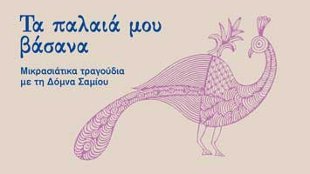
Song
Early last summer
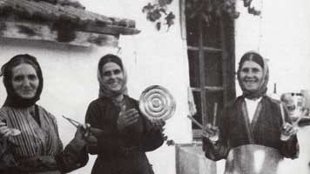
Song
Ballos from Alatsata
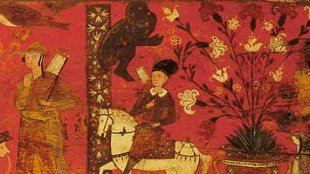
Song
Dawn Glowed in the East

Song
Dimitroula
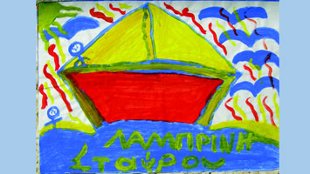
Song
Fishermen, Have You Any Fish

Song
For a Whole Seven Weeks...


Song
Roumbalia - Carnation



Song
The May Month

Song
The Water of Life

Song
The Young Meliots

Song
Yatzilariani


